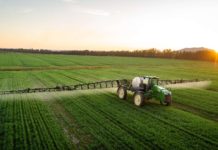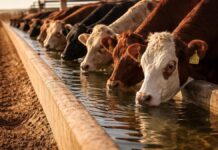Breaking news on the domestic market is that Minister of Agriculture, Land Reform and Rural Development (DALRRD) announced her decision to suspend all movement of cattle in the whole country to halt the continued spread of Foot and Mouth Disease (FMD) in the country.
The duration is 21 days in which all cattle may not be moved from one property to another for any reason which will however be subject to review weekly. Prosecution for the illegal movement of cattle will be conducted in terms of the contravention of the Animal Diseases Act, 1984 (Act no 35 of 1984).
In the previous update, DALRRD confirmed that there were 110 incidences in the previous FMD zone comprised of three events according to DALRRAD. The first event started in May 2021 in KZN while the second was from March 2022 in the previous FMD free zone in LP which spread to the Northern GP in April 2022. The 3rd outbreak started in March 2022 in the NW and has since spread to GP, the FS, and the MP provinces.
This is obviously not good news as it has negative impact on exports due to FMD being a notifiable disease in terms of the World Organization for Animal Health (OIE) and importing countries may elect to place a ban on imports as in the case of the Peoples Republic of China.
China earlier announced a ban on the import of all cloven-hoofed animals and their products from South Africa to China as of 01 April 2022. China accounted for about 22% of total SA meat exports in 2021 and additionally, its share of SA wool imports is over 70%.
Although a short-term measure, the suspension is still disruptive to the supply and demand dynamics in the country. However, persistent outbreaks will curtail the country’s export drive which is still a relatively small share of local production.
Further, there are huge economic consequences for producers and value chain industries from the potential loss of SA’s FMD free status if the situation is not arrested. The elevation of biosecurity measures including the use of technology for traceability is now an imperative for all stakeholders in the livestock value chain.








